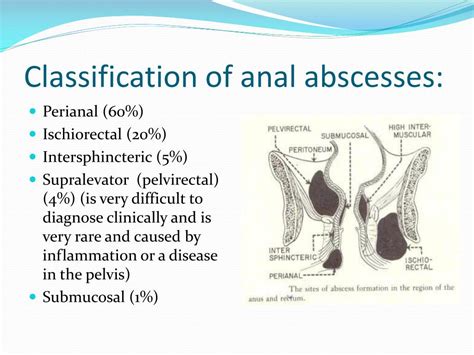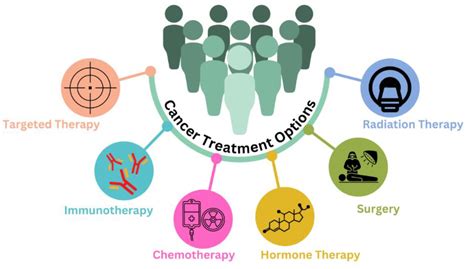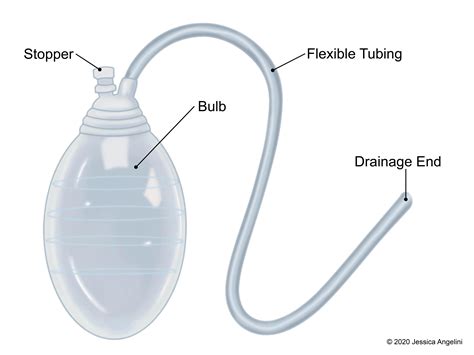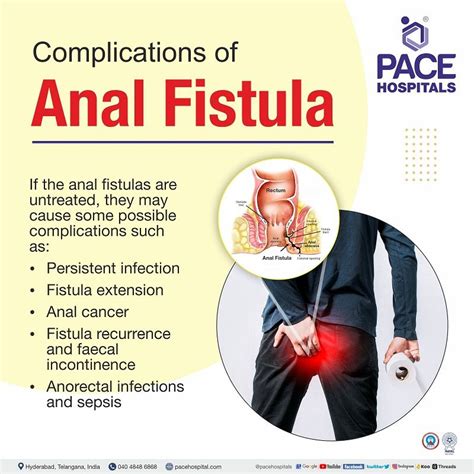Intro
Discover effective Anal Abscess Treatment Options, including surgery, drainage, and medication, to alleviate painful symptoms and promote healing, with a focus on perianal care and fistula management.
The presence of an anal abscess can be a distressing and painful condition, affecting daily activities and overall quality of life. It is essential to understand the importance of seeking medical attention for proper diagnosis and treatment. An anal abscess is a collection of pus that has built up in the tissue around the anus, often resulting from a bacterial infection. If left untreated, the condition can lead to severe complications, including the formation of a fistula, a tunnel that connects the abscess to the skin. In this article, we will delve into the various treatment options available for anal abscesses, highlighting the benefits, risks, and steps involved in each approach.
The treatment of an anal abscess typically depends on the size and severity of the condition. In some cases, small abscesses may be treated with antibiotics, while larger abscesses may require surgical drainage. It is crucial to consult a healthcare professional for an accurate diagnosis and to determine the most suitable treatment plan. The primary goal of treatment is to eliminate the infection, reduce symptoms, and prevent future complications. By understanding the different treatment options, individuals can make informed decisions about their care and work towards a speedy recovery.
The treatment of anal abscesses has evolved over the years, with advancements in medical technology and surgical techniques. Today, there are various treatment options available, each with its own set of benefits and risks. From conservative management with antibiotics to surgical drainage and fistula treatment, the choices can be overwhelming. However, with a comprehensive understanding of the treatment options, individuals can navigate the process with confidence. In the following sections, we will explore the different treatment approaches, including their mechanisms, benefits, and potential complications.
Understanding Anal Abscesses

An anal abscess is a painful collection of pus that forms in the tissue around the anus. The condition is often caused by a bacterial infection, which can enter the body through small tears or cuts in the anal skin. The bacteria can then multiply, leading to the formation of an abscess. In some cases, an anal abscess can be a symptom of an underlying condition, such as Crohn's disease or ulcerative colitis. It is essential to seek medical attention if symptoms persist or worsen over time.
Causes and Risk Factors
The causes of an anal abscess can be complex and multifaceted. Some of the common risk factors include: * Bacterial infections * Poor hygiene * Weakened immune system * Certain medical conditions, such as Crohn's disease or ulcerative colitis * Trauma to the anal area Understanding the causes and risk factors can help individuals take preventive measures and reduce their likelihood of developing an anal abscess.Treatment Options for Anal Abscesses

The treatment of an anal abscess typically involves a combination of medications, lifestyle changes, and surgical interventions. The primary goal of treatment is to eliminate the infection, reduce symptoms, and prevent future complications. Some of the common treatment options include:
- Antibiotics: Used to treat bacterial infections and reduce the risk of complications
- Pain management: Used to alleviate symptoms and improve quality of life
- Surgical drainage: Used to drain the abscess and promote healing
- Fistula treatment: Used to treat fistulas that have formed as a result of the abscess
Antibiotic Treatment
Antibiotic treatment is often used to treat small anal abscesses or to prevent the spread of infection. The antibiotics work by targeting the bacteria that cause the infection, reducing the severity of symptoms and promoting healing. However, antibiotic treatment may not be effective for larger abscesses, which may require surgical drainage.Surgical Drainage of Anal Abscesses

Surgical drainage is a common treatment option for larger anal abscesses. The procedure involves making a small incision in the skin to drain the pus and promote healing. The surgery can be performed under local or general anesthesia, depending on the size and location of the abscess. Surgical drainage is often effective in reducing symptoms and promoting healing, but it may be associated with certain risks and complications, such as infection, bleeding, and scarring.
Post-Surgical Care
After surgical drainage, it is essential to follow a comprehensive post-surgical care plan to promote healing and reduce the risk of complications. Some of the key steps include: * Keeping the area clean and dry * Taking pain medication as directed * Avoiding strenuous activities * Following a healthy diet * Attending follow-up appointments with the healthcare providerFistula Treatment Options

A fistula is a tunnel that connects the abscess to the skin, allowing pus to drain out of the body. Fistula treatment options vary depending on the size and location of the fistula. Some of the common treatment options include:
- Fistulotomy: A surgical procedure that involves cutting the fistula to allow it to heal from the bottom up
- Seton placement: A procedure that involves placing a small tube or cord through the fistula to keep it open and allow it to drain
- Fistula plug: A small device that is inserted into the fistula to block the flow of pus and promote healing
Benefits and Risks of Fistula Treatment
Fistula treatment can be effective in reducing symptoms and promoting healing, but it may be associated with certain risks and complications, such as infection, bleeding, and scarring. It is essential to discuss the benefits and risks with a healthcare provider to determine the most suitable treatment plan.Preventing Anal Abscesses

Preventing anal abscesses requires a combination of good hygiene, a healthy diet, and regular exercise. Some of the key steps include:
- Practicing good hygiene, such as washing the anal area with soap and water
- Eating a healthy diet that is rich in fiber and low in processed foods
- Staying hydrated by drinking plenty of water
- Avoiding strenuous activities that can put pressure on the anal area
- Managing stress through relaxation techniques, such as meditation or deep breathing
Lifestyle Changes
Making lifestyle changes can help reduce the risk of developing an anal abscess. Some of the key changes include: * Quitting smoking * Reducing alcohol consumption * Getting regular exercise * Managing weight * Getting enough sleepConclusion and Next Steps

In conclusion, anal abscesses are a common condition that can be painful and distressing. However, with proper treatment and care, it is possible to reduce symptoms and promote healing. By understanding the different treatment options, individuals can make informed decisions about their care and work towards a speedy recovery. It is essential to consult a healthcare provider for an accurate diagnosis and to determine the most suitable treatment plan.
If you have any questions or concerns about anal abscess treatment options, we encourage you to share them in the comments below. You can also share this article with others who may be experiencing similar symptoms or concerns. By working together, we can promote awareness and education about anal abscesses and improve treatment outcomes.
What are the symptoms of an anal abscess?
+The symptoms of an anal abscess can include pain, swelling, and discharge in the anal area. In some cases, individuals may experience fever, chills, and fatigue.
How is an anal abscess diagnosed?
+An anal abscess is typically diagnosed through a physical examination and medical history. In some cases, a healthcare provider may order imaging tests, such as an ultrasound or MRI, to confirm the diagnosis.
What are the risks and complications of anal abscess treatment?
+The risks and complications of anal abscess treatment can include infection, bleeding, and scarring. In some cases, individuals may experience fistula formation or recurrence of the abscess.
Can anal abscesses be prevented?
+While anal abscesses cannot be completely prevented, individuals can reduce their risk by practicing good hygiene, eating a healthy diet, and getting regular exercise.
What is the prognosis for anal abscess treatment?
+The prognosis for anal abscess treatment is generally good, with most individuals experiencing significant improvement in symptoms and quality of life. However, in some cases, individuals may experience recurrence or complications, such as fistula formation.
